Purpose and People
The Center for Public Safety and Cybersecurity Education was created to address current and emerging needs in education and training and to promote greater awareness of issues that impact individuals and communities. Learn more about the Center's purpose and philosophy, as well as the individuals who help us to deliver on our mission.
Contact Us
Learn more about how Franklin can develop tailored training solutions for your organization.
Purpose
Bringing together public safety and cybersecurity academics and practitioners to offer:
Education and Professional Development for Professionals: The Center for Public Safety and Cybersecurity Education (CPSCE) brings together expert scholars and practitioners in their respective fields to provide education and professional development to professionals who want to improve their knowledge and skills and the capacity of their organizations to deliver high quality services and performance. Our education and training prepare professionals to effectively prevent, investigate, and solve public safety and cybersecurity challenges facing organizations.
Education and Training Solutions for Organizations: The CPSCE or Center leverages faculty – who are both thought leaders and practitioners – along with Franklin University’s reputation for excellence in curriculum and course development who can create tailored learning experiences for your organization that address critical public safety and security concerns within industries and communities.”
Research and Consulting Services: for Organizations: Our experts as also provide consulting and research services for law enforcement and information technology professionals and organizations. We provide a range of services designed to improve organizational performance and recommend solutions to critical cybersecurity and public safety problems.
Message from the Executive Director
Welcome to the Center for Public Safety and Cybersecurity Education. The creation of the center is a culmination and a beginning. It is a culmination of collaborative work between public safety and cybersecurity faculty and it is a beginning of many opportunities to collaborate in an interdisciplinary manner while also looking at the future of cybersecurity and public safety education. This cutting-edge Center includes innovative degree programs in both public safety and cybersecurity, partnership work that has been on-going in these fields, and seminar-style, non-credit offerings that can lead to a degree. The work of the Center will continue to rely on a broad array of faculty expertise and knowledge but also industry knowledge as it seeks to address the needs of the broadest array of learners.
Jonathan McCombs, Ph.D.
Dean, College of Health & Public Administration
CPSCE Board of Advisors

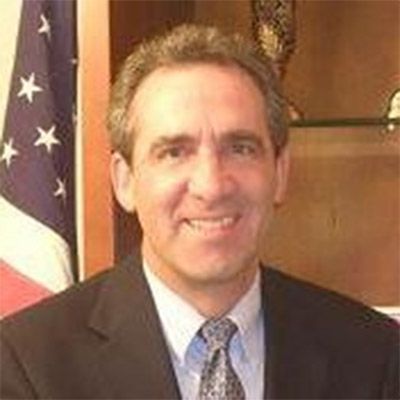





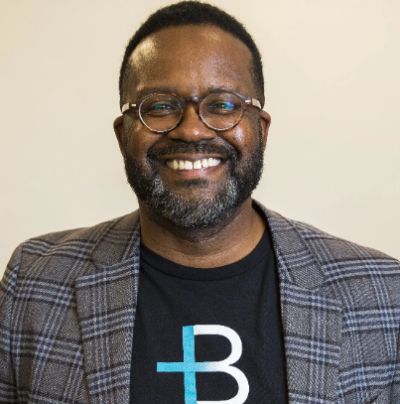
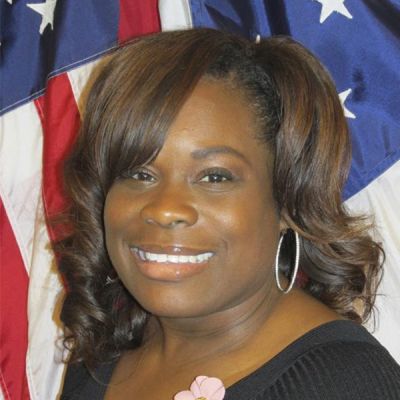
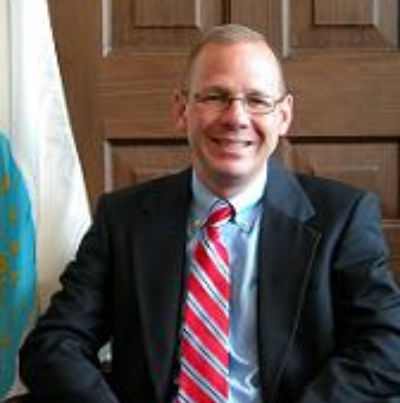
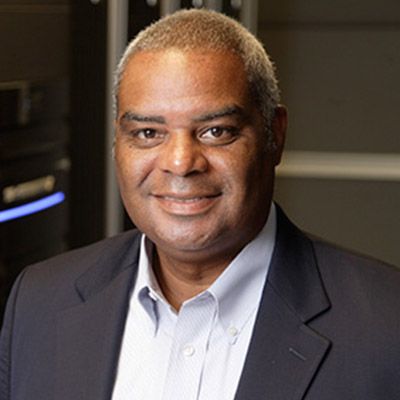

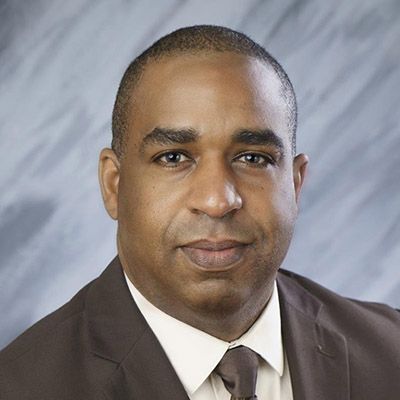
Meet the Team
Jonathan McCombs is an educator, former police officer and investigator. An extensive career of over 20 years in public safety and higher education provided experience in narcotics investigations, intelligence analysis, anti-terror investigations, gun trafficking investigations, street patrol, campus law enforcement administration, higher education administration and advanced training. He holds a Master of Science in Criminal Justice and a Ph.D. in Criminal Justice. His dissertation topic was a study of problem-based learning in law enforcement in-service training. As an industry expert in the field of law enforcement, problem-based learning and online learning, Dr. McCombs is currently the Dean of the College of Health & Public Administration at Franklin University. He has responsibility for multiple public safety undergraduate and graduate academic programs.
Chenelle Jones currently serves as Assistant Dean of Community Engagement and Program Chair for Public Safety Programs at Franklin University. Dr. Jones received her Ph.D. in the Administration of Justice from Texas Southern University in Houston. Her research interests include race and crime, policing, and juvenile delinquency. She is particularly interested in issues of police/community relations, disproportionate minority contact (DMC), mass incarceration, and the intersection of race and gender in the criminal justice system.
Dr. Jones currently serves as the national director of research for the Teen and Police Service (TAPS) Academy, a federally funded program designed to reduce social distance between police officers and at-risk minority youth. She has written numerous articles and book chapters on public perceptions of the police, race and the administration of justice. She is the co-editor of A Critical Analysis of Race and the Administration of Justice. She is a reviewer for the U.S. Department of Justice Office of Justice Programs, and several academic journals including the Journal of Juvenile Justice, the Journal of Offender Rehabilitation, and Race and Justice. She is a crime analyst for TV One’s hit show “For My Man.” She is the recipient of numerous awards including the Conley Award for Excellence in Teaching and the Visionary Award by Columbus City Council and the Create Columbus Commission. Dr. Jones is also a member of several community and professional organizations including Alpha Kappa Alpha Sorority, Incorporated, the Create Columbus Commission, the Academy of Criminal Justice Sciences, the American Society of Criminology, the National Association of Blacks in Criminal Justice, and the Racial Democracy and Criminal Justice Network.
Dr. Bergstrom has almost 30 years’ experience in cybersecurity managing and contributing to projects that include cleaning up a nuclear facility after it was infected with malware; secure code development projects, over 150 risk assessments/security assessments/gap analysis; and digital forensics cases for companies, local law enforcement, and FBI task forces. She has been an educator for students at the associates through doctorate levels serving as their teacher, coach, and mentor. Her expertise has led to textbooks, cybersecurity awareness books, and many conference and research papers. She is the Vice Chairman of the Colloquium for Information System Security Education (CISSE); a senior editor for the CISSE Journal; a reviewer for the Journal of Digital Forensic Science and Law and many conferences. She holds 23 industry certifications including the CISSP, C|CISO, PMP, and Security+.
Dr. Abu Shattal (S'16-M'18) received B.Sc. in Computer Engineering from Yarmouk University, Irbid - Jordan, 2006 and M.S. in Communications Engineering from Mutah University, AlKarak - Jordan, 2011. He received his Ph.D. in Electrical and Computer Engineering from Western Michigan University (WMU), Kalamazoo, Michigan in 2017. Dr. Abu Shattal serves as a Program Chair of BS in Cloud Computing and as a Lead Faculty of IT in the Department of Computing Sciences and Mathematics at Franklin University. Previously, Dr. Abu Shattal served at The Ohio State University as Post-Doctoral Researcher with the ElectroScience Lab in the Department of Electrical and Computer Engineering and as a Senior Lecturer in the Department of Computer Science Engineering.
Dr. Abu Shattal is a member of IEEE and ACM and he is a Microsoft Certified System Administrator (MCSA), Professional (MCP), and Trainer (MCT). He serves as a Peer Reviewer for several journals such as IEEE Transactions on Vehicular Technology, IEEE Access, IEEE Communications Letters, and IEEE Wireless Communications Letters. He is also a TPC member of internationally recognized conferences such as IEEE VTC 2018-2019, IEEE COMMNET, and BROADNETs 2018-2020.
Kemal Aydin received his Ph.D. in Applied Computing from University of Arkansas at Little Rock in 2009. He has worked at the University of Arkansas at Pine Bluff for 3 years, then at the North American University for 5 years. He published “Unsupervised Learning Algorithms” books in 2016 by Springer. He received $15,000 grant from Microsoft for Machine Learning LAB. He has developed the following labs: Academia, ACM-ICPC, ACM-W, AI, Bioinformatics, Cybersecurity, Design, Drone, Industry, and Starter Lab. His research interests are biomedical signal processing, artificial neural networks, data mining and computational thinking. He loves coaching students on soft skills.
Chunbo Chu is the program chair of the B.S. in Computer Science and the program chair of the M.S. in Computer Science at Franklin University. He has been a lead faculty of Computer Science at Franklin University since July 2008. Dr. Chu received his bachelor's and master's degrees in Computer Science from Fudan University (Shanghai, China) in 1997 and 2000 respectively, and a Ph.D. in Computer Science from Wayne State University in 2008. Dr. Chu’s current interests include monitoring and predicate detection in distributed systems, synchrony, emergent internet technologies and computer science education.
Joel Gardner is the Assistant Dean of Instructional Design at Franklin University where he leads a team of outstanding design, media, and assessment experts. He is also a faculty member in Franklin’s Doctor of Instructional Design Leadership program. He holds a Ph.D. in Instructional Technology and Learning Sciences from Utah State University. As a practitioner and a scholar, Dr. Gardner publishes peer-reviewed scholarly articles related to human performance improvement, instructional design, project management, systematic decision-making and learning leadership.
Dr. Lynda Hall earned her M.A. and Ph.D. in Experimental Psychology from the University of Notre Dame. She began her career at Ohio Wesleyan University In 1985 as project administrator for a research program investigating very long-term memory supported by the National Science Foundation. After she joined OWU’s faculty four years later, she assumed responsibility for teaching courses in Quantitative Methods, Research Methods, and Cognitive Psychology. She continued to partner with Dr. Harry Bahrick on research on maintenance of knowledge systems and with Dr. Rob Kail on investigations of developmental changes in processing speed. These efforts were funded by a series of federal research grants and culminated in 16 high impact journal publications and the 2013 book, Lifespan Maintenance of Knowledge, published by Taylor and Francis.
She served as chair of OWU’s Psychology department from 2012 to 2015 and as Associate Dean for Academic Performance from 2016 until 2021. Dr. Hall joined the CPSCE in 2021 as a Research Fellow, and in this capacity, she has been able to apply her extensive experience in the design and implementation of experimental, correlational, qualitative and mixed methods research protocols. In addition, she brings to the team expertise in statistical analysis using SPSS, Excel, Power BI, R and other tools.
Bradley Watson is the program chair for Franklin University’s Information Systems and Web Development majors. Dr. Watson holds two undergraduate degrees and four graduate degrees (Library Science, English and Computer Science), including a Ph.D. from The Ohio State University in English (Dissertation: A Computer-Based Barthesian Reader's Assistant: Xebra Rides Roland Barthes' Textual Network of Signifiers). Dr. Watson is completing his dissertation in Computer Science at Nova Southeastern University (Dissertation: Runtime Detection and Prevention of Attacks Enabled By Aspect-Oriented Programming Through the Application of the Information Flow Control Model).
Before joining Franklin University full time in the Fall of 2006, Dr. Watson held previously held positions as information technology division director and chief information officer for the Ohio Department of Aging and research scientist for OCLC (Online Computer Library Center, Inc). While at OCLC, Dr. Watson focused his research in the area of information retrieval algorithms and indexing approaches using natural language processing methodologies.
Todd Whittaker currently serves as the department chair for Computer and Information Sciences and program chair for Information Technology and Cybersecurity at Franklin University. He has more than 20 years experience in computer-related fields and has previously held positions as an associate professor at DeVry University, software engineer at Battelle Memorial Institute and UNIX systems administrator at the University of Akron. He has extensive knowledge of object-oriented programming languages, design patterns, development processes, systems administration, network security, software security, curriculum and technology education. Todd holds an MS in Computer Science and a PhD in Information Systems. Todd enjoys outdoor activities such as long distance running, hiking, and camping; spending time with his wife and children; and teaching in a small home group Bible study.
In Memoriam
Dr. Alexander Heckman
"Dr. Heckman was a dedicated faculty member and instrumental leader in the development and founding of the Center for Public Safety and Cybersecurity Education. His contributions to the many academic, research, and operational imperatives of the center, helped to shape much of the early proposals and its footprint as an academic center at Franklin University. The university now has multiple academic centers within this framework based on this work. He is the founder of the Masters in Public Administration program."
Request Free Information
Learn more about how Franklin can develop an educational partnership tailored to your organization.
Get in touch with us today!
Franklin University
201 S Grant Ave.
Columbus, OH 43215
Local: (614) 797-4700
Toll Free: (877) 341-6300
admissions@franklin.edu
Copyright 2025 Franklin University
Franklin University is accredited by the Higher Learning Commission (hlcommission.org/800.621.7440) and authorized by the Ohio Department of Higher Education.
Franklin University is committed to being an inclusive community free from all forms of discrimination and harassment.